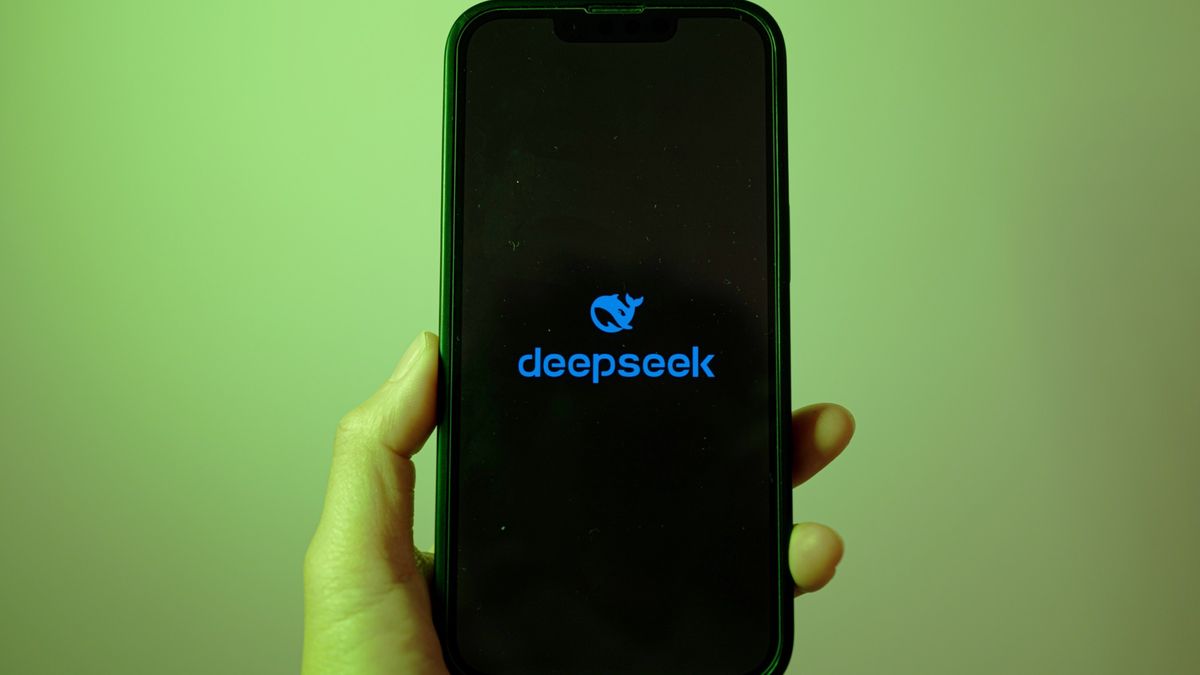The sudden rise of Chinese artificial intelligence company DeepSeek “should be a wake-up call” for US tech firms, said President Donald Trump.
On Monday, DeepSeek’s new AI assistant overtook Open AI’s ChatGPT in the US as the most downloaded free app on Apple’s App Store. And Nasdaq, the American tech stock exchange, plummeted by $1 trillion (£800 billion) in response. The revelation that DeepSeek’s chatbot offers comparable performance to its US rival but was reportedly developed at a fraction of the cost “is causing panic within US tech companies and in the stock market”, said NBC News.
US venture capitalist Marc Andreessen posted on X that the release of the DeepSeek-R1 open-source reasoning model is “AI’s Sputnik moment” – a reference to the Soviet Union launching the first earth-orbiting satellite in 1957, catching the US by surprise and kickstarting the Cold War space race.
Subscribe to The Week
Escape your echo chamber. Get the facts behind the news, plus analysis from multiple perspectives.
SUBSCRIBE & SAVE
Sign up for The Week’s Free Newsletters
From our morning news briefing to a weekly Good News Newsletter, get the best of The Week delivered directly to your inbox.
From our morning news briefing to a weekly Good News Newsletter, get the best of The Week delivered directly to your inbox.
DeepSeek-R1 differs from other chatbots, like ChatGPT, in that it articulates its reasoning before delivering a response to a prompt. The idea is to “simulate a human-like chain of thought that works though a solution”, said tech website Ars Technica. And unlike conventional large language models (LLMs), it takes “extra time to produce responses”, which means it “often increases performance”. DeepSeek has claimed R1 is “near or better than rival models” for mathematical tasks, general knowledge and question-and-answer performance, said Bloomberg.
R1 has clinched the top spot on industry leaderboards, as well as app store downloads, and “tech leaders, analysts, investors and developers say that the hype – and ensuing fear of falling behind in the ever-changing AI hype cycle – may be warranted”, said CNBC.
DeepSeek released its new R1 model family under an open MIT license, showcasing its ability to build simulated reasoning models on a tight budget. The company claims to have developed its chatbot for as little as $6 million, a fraction of the billions spent by its US rivals.
This low-cost development seems to have been driven as much by necessity as invention, after the US started restricting the sale of the most advanced microchip technology to China. Without the “steady supply of important chips”, the Chinese developers have “shared their work with each other and experimented with new approaches to technology”, said the BBC.
The result is AI models “that require far less computing power than before” and, because they therefore “cost a lot less than previously thought possible”, they have “the potential to upend the industry”.
Chinese censorship ‘baked in’
DeepSeek’s model is open-source, and “having an advanced, free reasoning model for developers to use any way they want is a big deal”, said Sherwood News. One major drawback, though, is that it “comes with Chinese censorship baked in”.
DeepSeek-R1 is unable to answer, for example, questions on the 1989 Tiananmen Square massacre or Taiwan’s pro-democracy movement, and it gave a “government-aligned response” when prompted on the treatment of China’s Uyghur minority. It’s also declined to give detailed responses about China’s President Xi Jinping, although it does answer prompts about other world leaders.
These examples “highlight a dangerous aspect” of developing LLMs, said the business and tech news site. If “the model-builders can choose which data defines ‘the truth’ for the LLM”, then “that same ‘truth’ informs the people who use it”.
End of America’s technical edge
DeepSeek’s “breakthrough” AI model has “stirred awe and consternation in Silicon Valley”, said Bloomberg. It “carries far-reaching implications for the global tech industry and supply chain”, upturning the “widespread belief” that AI developments require “ever-increasing amounts of power and energy”.
And the reaction in the financial markets was brutally swift. Monday saw the share price of US chipmaker Nvidia drop by 17%, losing more than $600 billion (£482 billion) in market value. Microsoft and Alphabet also took a huge hit, shedding $130 billion (£105 billion) and $80 billion (£65 billion) respectively. There were also huge drops for Dutch chip-equipment maker ASML and AI hardware manufacturer Siemens Energy.
The release of DeepSeek-R1 has “sparked a frenzied debate” about whether US AI companies “can defend their technical edge”, said the Financial Times. Meanwhile, DeepSeek’s surge in popularity has turned its “reclusive leader”, the 40-year-old hedge-fund manager Liang Wenfeng, “into a national hero who has defied US attempts to stop China’s high-tech ambitions”.














